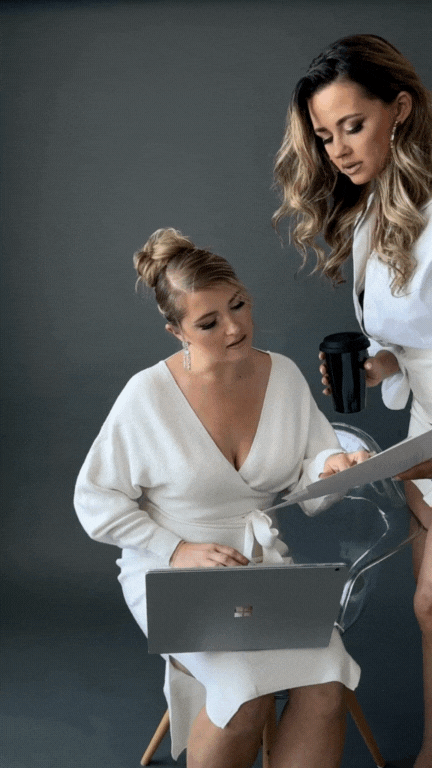How to Know Where to First Invest in Your Business
- Apr 21, 2023
- 4 min read
Updated: Mar 24, 2025
Congratulations on starting your own business! What an amazing opportunity that requires a lot of dedication, time, energy, and money. We know as good as anyone how taxing it is to start a business from the ground up, and the financial implications of that. We wanted to talk today about knowing how and where to invest in different areas of your business as you start out, because it can certainly be confusing where to best put your (or other investor’s) money!
Maybe you have received funding from various investors to start your business, or perhaps you are self-funding your business. Regardless of where you get your money to begin, knowing where to put that money and in what order is a crucial step to business success (and seeing that ROI as quickly as possible).
So while every business is different and the expenses vary drastically, let’s talk about the 3 best places to invest your business funds when kicking off a new business.

Top 3 Initial Investment Areas for New Businesses
1. Equipment & Supplies
Whether you are a photographer without a studio, an event planner with multiple venues, or a salon owner with growing employees, your business requires certain equipment to function. In order to service your clients or customers, you will need equipment and supplies to support them and their desires. Your first major investment should be in quality equipment and supplies.
Now, know that we recommend investing in quality equipment that will last you a long time, but it also comes at a cost to invest in THE highest equipment. Sometimes you have to sacrifice some quality for affordability and in order to stretch those initial dollars as far as possible.
It’s important to do your research when it comes to equipment and what will be the best option for your business. You don’t want too cheap of equipment that could break down in a few short months, but you also might have to take stepping stones to eventually have the top-of-the-line equipment. Do your research and make the best judgment call when it comes to the initial investment into supplies and equipment.
2. Marketing
A business can’t grow without proper marketing! Investing in initial marketing efforts will always produce ROI because it gets your name out there. It helps your target audience see who you are and what you offer. Whether they choose to convert to clients or customers depends on the effectiveness of your marketing, so it’s important to work with a marketing expert or study up on marketing best practices for your industry before opening your doors (literally or figuratively).
Marketing experts will often tell you that having a website, social media accounts, a Google Business Listing, and other various digital marketing tools is key to starting your business. And they are not wrong! These elements provide you with exposure and searchability - keys to people finding your business and contacting you with interest.
Remember that you don’t need to pay millions of dollars to have someone else make these for you, but it is important to know what you’re doing when it comes to making each of these things. Consider consulting with a marketing professional or team to learn about the basics. If this is out of your wheelhouse to execute, hire someone who understands your business vision and goals to produce these marketing elements for you. You will never be sad to invest in marketing because it does the talking for you and gets your business out there!
3. Reserve
When we say “reserve”, we are referring to a financial reserve of money that can be used in an emergency OR to help cover expenses if your business is not producing revenue. This reserve often needs to be built over time as you likely won’t start off making money right away.
Having a safety reserve will comfort you in knowing that you have options should expenses get tight or if something comes up that you weren’t expecting. While initial investment dollars should absolutely go towards helping your business grow, don’t forget to set aside funds monthly to go towards a reserve fund. These dollars should be kept untouched as much as possible to protect your business from drastic financial issues.
While a reserve is helpful to have, it sometimes is not possible to build one very quickly or at all. Know that you also have the option of getting more funding to support your business in times or need, and this could come from a business loan, new investors, or lines of credit.
The mere fact that you decided to leap into starting a business is worth major celebration! We are so proud of you! But we also know how scary it can be to take this financial risk and we hope these suggestions can help you along your way.
Whether you choose to invest in these areas, or go a different route, know that we are cheering you on and hoping for your success each and every day!







Comments